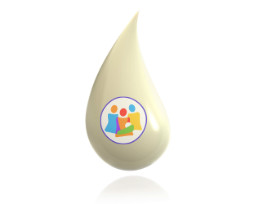Alcohol Use During Lactation
Updated 01/25
PDF Version
Casual use of alcohol (such as 5 oz (148ml) of wine, 12 oz (360ml) of beer, or 1.5 oz (45ml) of distilled spirits per day) is unlikely to cause either short- or long-term problems in the human milk-fed infant. However, more than 2 drinks a day can have a negative effect on the infant’s development, possibly causing agitation, sedation, poor sleep patterns, and insufficient weight gain.
Guidelines for Alcohol Use During Lactation
- The highest alcohol levels in milk occur 30 to 60 minutes after an alcoholic beverage.
- The lactating parent can decrease alcohol in their milk by waiting 2-2.5 hours per drink before feeding.
- Directly feeding or pumping within 1 hour before drinking alcohol may slightly reduce the amount of alcohol in the milk.
- The milk alcohol level closely parallels the blood alcohol level. As the blood alcohol level goes down, so does the milk alcohol level.
- Alcohol decreases milk production, with 5 drinks or more decreasing milk letdown and disrupting direct feeding until the parent’s alcohol levels decrease.


